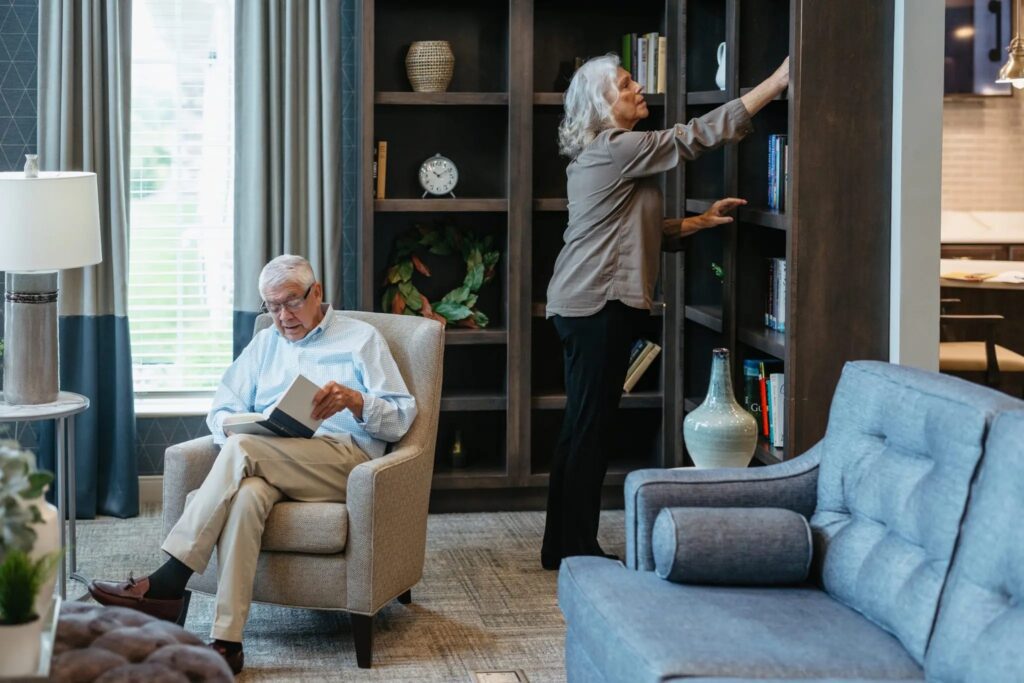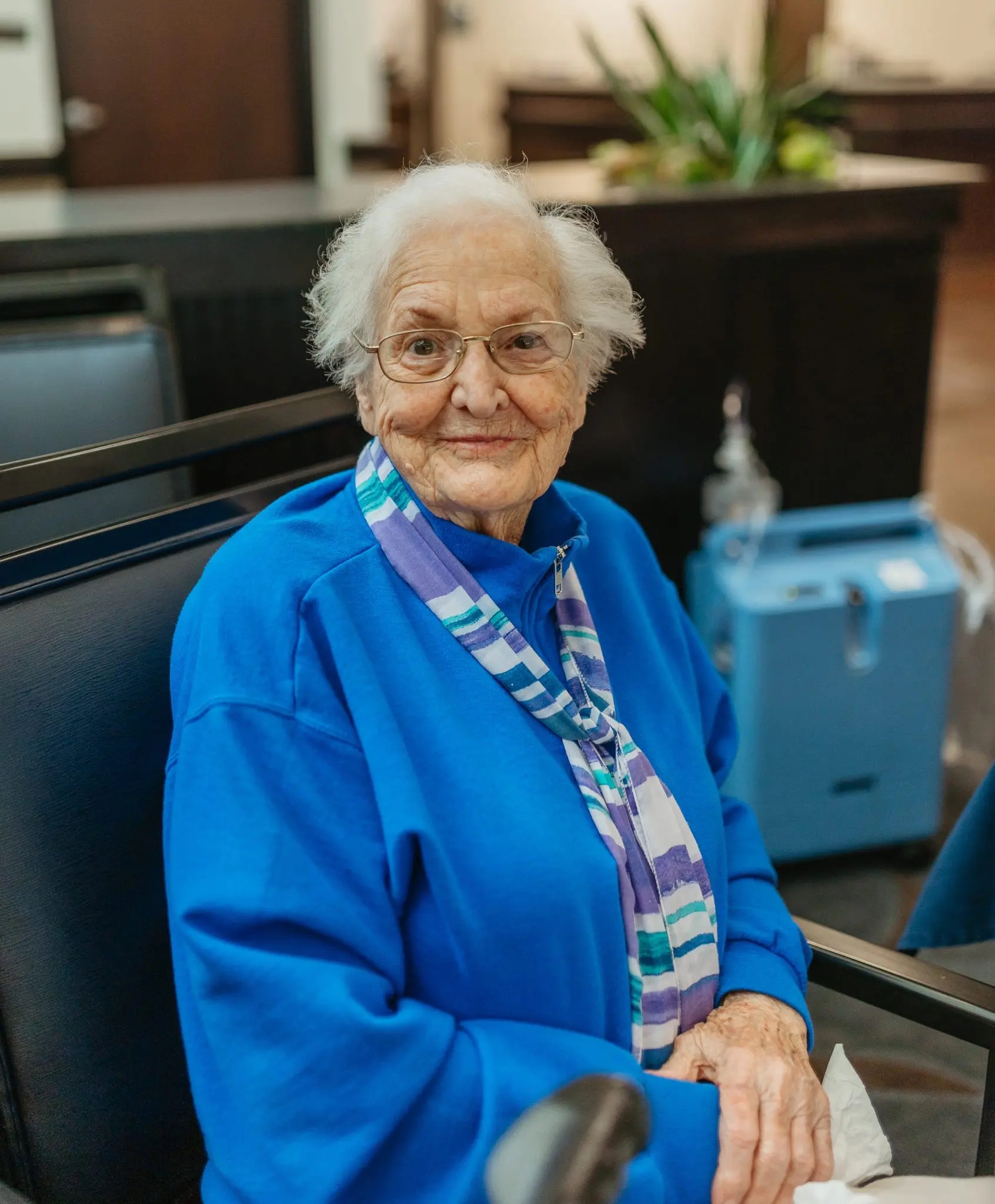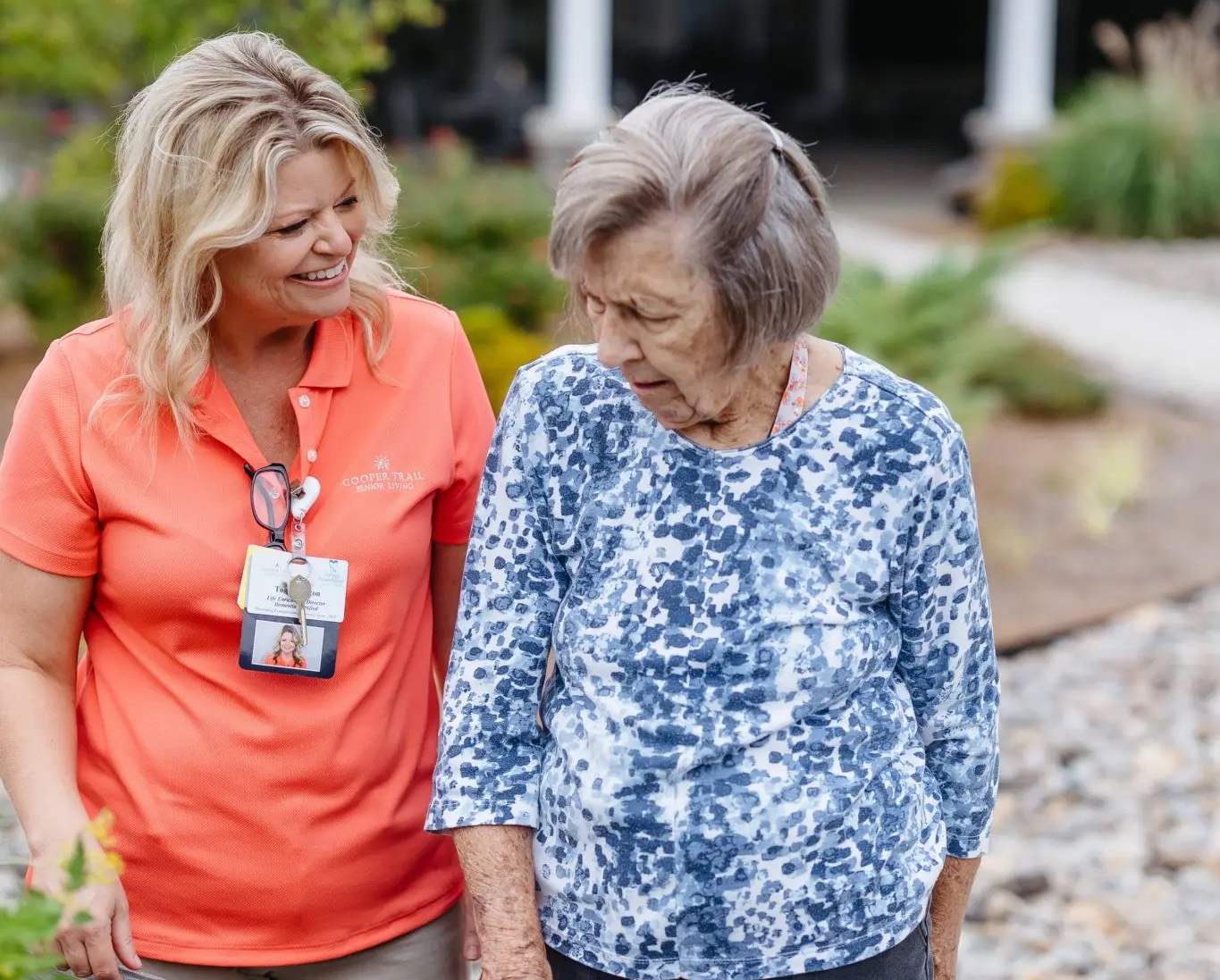Our BFF Approach
Inspired by David Troxel and Virginia Bell’s Best Friends™ Approach to Dementia Care, the Trilogy BFF approach provides our residents with an entire community of Best Friends.

Best Friends™ Approach
Developed by David Troxel and Virginia Bell, the Best Friends™ Approach to Dementia Care was founded on the belief that what those with dementia need is a friend, a Best Friend.

Best Friends™
The best friend can be a family member, friend, or staff member who empathizes with their situation, remains loving and positive, and is dedicated to helping the person feel safe, secure and valued – no matter what.

Taking the Best Friends Approach:
We learn their life stories. If he’s known for his love of hot sauce, we make sure it’s always at the table. If she used to boogie to country western music, we’ll dance with her to her favorite hits. At our campus, who they are defines their experience, not the other way around.
We communicate in ways that work for them. We encourage connection with both non-verbal and verbal communication. Smiles, hugs, cues and compliments can go a long way. By offering our residents simple life choices and asking for their opinions, we help them feel valued and in charge of their own lives.
We use our activities as a time to connect. Whether we’re cooking a favorite recipe, enjoying music & art, exercising, spending time outdoors, watching videos or sharing stories, our goal is always the same: to enjoy one another’s company as best friends do.


Dementia Bill of Rights
We are proud to endorse the Best Friends™ Dementia Bill of Rights. Upholding these rights for those we serve is both the purpose and the passion of every member of our team.
- To be informed of one’s diagnosis.
- To have appropriate, ongoing medical care.
- To be treated as an adult, listened to, and afforded respect for one’s feelings and point of view.
- To be with individuals who know one’s life story, including cultural and spiritual traditions.
- To experience meaningful engagement throughout the day.
- To live in in a safe and stimulating environment.
- To be outdoors on a regular basis.
- To be free from psychotropic medications whenever possible.
- To have welcomed physical contact, including hugging, caressing, and handholding.
- To be an advocate for oneself and for others.
- To be part of a local, global, or online community.
- To have care partners well trained in dementia care.

Webinar Series with David Troxel
Dementia Related Behavior: Managing Challenging Moments with Confidence
A Compassion-Based Caregivers Toolkit: Best Friends™ Approach
Understanding & Responding to Dementia-Related Behavior

